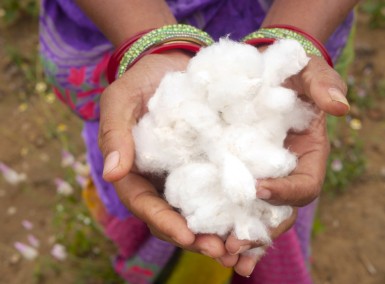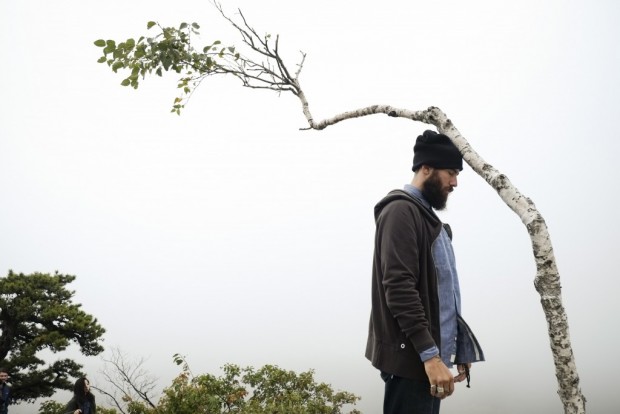
What I’ve been burbling over and over again about is that what it matters more and more these days is sustainability. Yes, we all want our clothes to pay off and last through years. But what it slowly but steadily starts to matter is the ethical part. Knowledge is something all of us should aim for. From where does this T-shirt come from? Who made it? What am I wearing in terms of materials? These are questions we (should) all have.
Loomstate is a cool T-shirt company and way more than that. Loomstate has a mission – they are working on sustainable, ethical principles. They are trying to make more and more people conscious and to raise awareness towards environmental and social issues that we tend to ignore till they become really huge. What this brand has realized is the simplest yet the hardest thing – the only solution to our problems is caring. We all live in the same world and we all have the same responsibilities towards our lands and communities.

With a big team of truly motivated people, Loomstate offers a model of a company that many brands should follow. Founded in 2004 by designer Rogan Gregory and Scott Mackinlay-Hahn, the New York based, organic cotton apparel brand has long been established. What reigns in this company is dedication and transparency. That’s why they had no problem at all to share with us information and lovely photo-material from their factories in India. E-commerce and Marketing’s head, Annie McBride took the time to enlighten us and Sustainability Director Rhett Godfrey shared with us photos of his recent trip visiting their factories in India.
There is a whole process with many many stages so that the cotton becomes your beloved T-shirt. Let’s go on a journey with Loomstate to discover all the links of the chain.
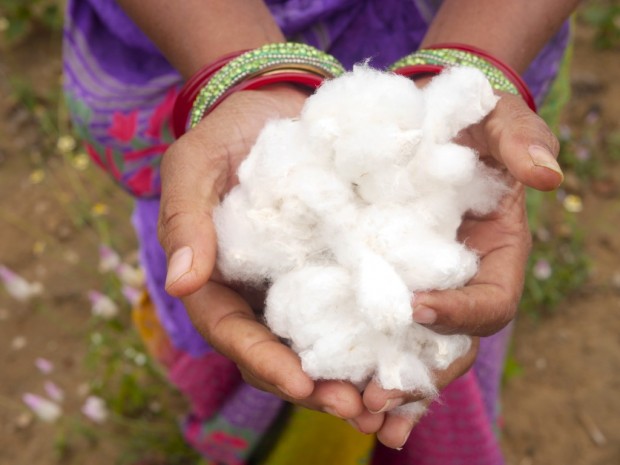
Does Loomstate only work with organic cotton as a material?
Our focus is making functional clothing using sustainable materials and a transparent supply chain. We’ve linked up with some organic cotton farming communities that are functioning in a truly sustainable way and we are looking to partner with them long-term. While we primarily use organic cotton, we are open to learning and engaging with new sustainable fibers that are developed, as technologies and techniques develop.
What’s the philosophy of Loomstate?
We are hoping to change how people think about clothing. We want our customer to know whose hands their T-shirt passed through before ending up in theirs. When a customer acknowledges the people involved in making a product, they are more likely to respect, care for and repair a garment, as well as make responsible shopping decisions (with both environment and people in mind).
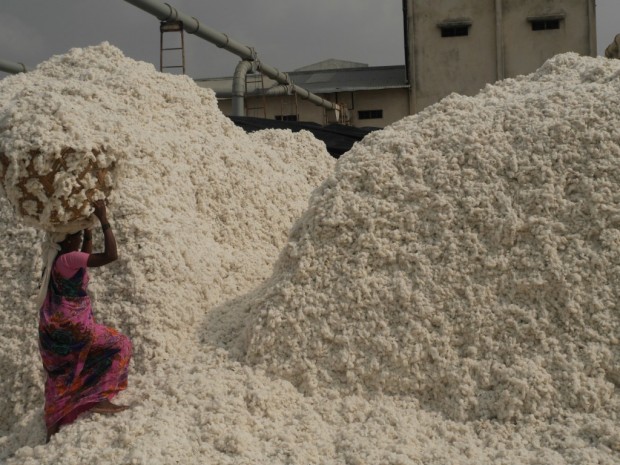
A key for living better is knowledge. It’s important to know the origin of your food, of the products you use every day and of course of your clothes. Would you like to talk to us a bit about the process? How does the cotton become clothing?
We wear clothes. We don’t wear cotton. This is what makes it different than food. There’re lot more processes after the farm: ginning, spinning, knitting, dyeing, printing, the cut and assembly, packaging, storing, and the distribution. To care about the health and being of the whole supply chain can be an overwhelming task. We put most of our energy into working with the best possible factories and farms that are certified to the highest social and labor standards. Factories that don’t use hazardous chemicals and that care about their workers and communities. Then we do the foot work. We walk our entire supply chain. We make relationships, partnerships. We drive creative solutions to any issues we find. Our goal is singular and unique. We want to create an additive process. One that adds to the health and well being of everyone in the chain. We start with organic cotton but we end with the daily task building community.
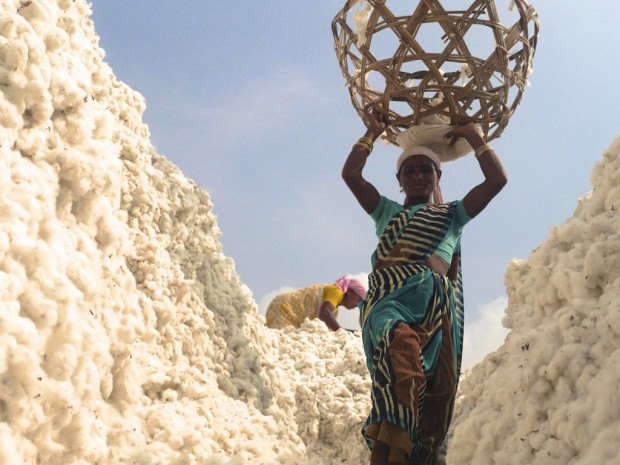
Do you still have questions about the process? In the matter of the supply chain, you might all have some more questions. That’s why Annie provided us with the grande Made in USA project. It’s an awesome mapping tool where you can find all information and answers you might need.
How do you find your partners in other countries? For example, how did you get in touch with the farms and the factories in India?
We work with some awesome partners in India. We found them through industry groups and our own research. Loomstate had an idea that we wanted only to enter into sustainable relationships. That really means just one thing: Long-term commitment. So we looked for the absolute best organic farming communities and facilities we could find. Right now we work with two farmer groups in India. One in Maharastra, another in split between Telangana and Odisha.
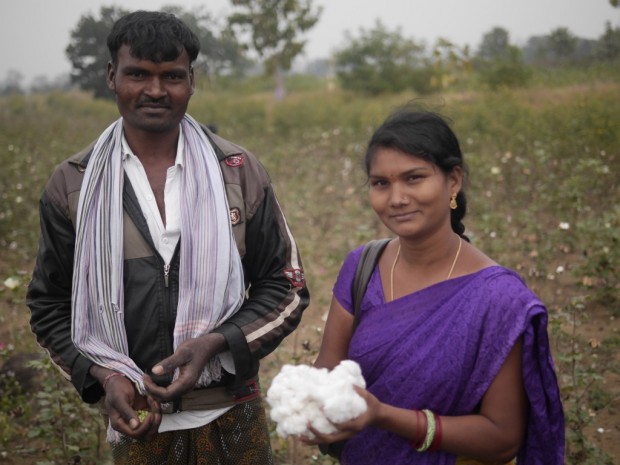
Are there any new projects that you work on at the moment?
In the past year we have shifted gears a bit and are focusing more on developing private label partnerships with other brands that want to go organic with their uniforms. For example, we’ve designed organic cotton uniforms and merchandising for the big guys, like Chipotle Mexican Grill to smaller businesses like the Surf Lodge, a cool spot out in Montauk. We have some very exciting partnerships this year that we can’t share yet, so stay tuned!
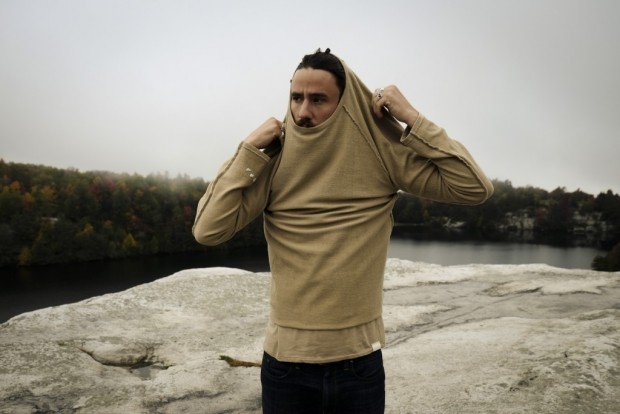
What do ‘Hope’ and ‘Passion’ mean to your organization?
Growing organically without the use of chemical pesticides and fertilizers takes a lot of work and PASSION. Organic farmers have to care – it’s very hard work to cultivate a crop and satisfy orders each season without having a negative impact on their environment. They must be connected to the environment and be educated on how to tend to the nuances of their land. Loomstate is passionate about supporting these organic cotton farming communities and we work hard to educate our customer on the important of buying organic products. An increased demand for organic will inspire more farms to transition to organic agriculture.
NOTHING BUT HOPE AND PASSION gives you a 20% discount code for all full-price items on loomstate.org (except fundraiser tees and jewelry), valid until the end of April. Just use the code ‘HOPEPASSION’.
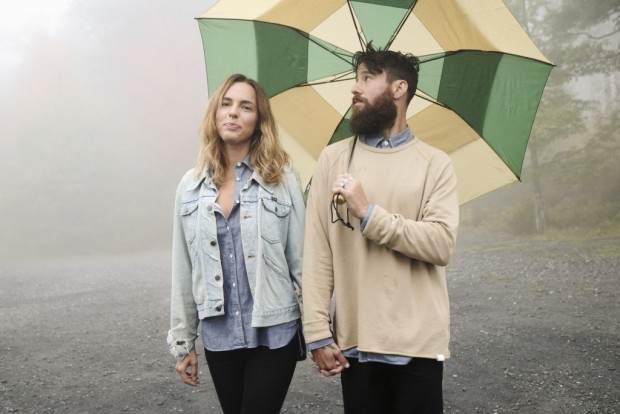
—
All photos courtesy of Loomstate.



